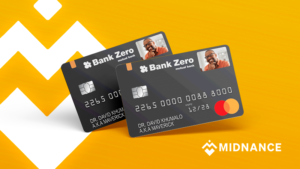Financial independence means having enough wealth or passive income to cover your living expenses without depending on a traditional job. It gives you the ability to make life choices without being constrained by financial worries. Many people associate financial independence with early retirement, but it’s really about having the freedom to work on your own terms.
Those who achieve financial independence no longer rely solely on a paycheck. Instead, they generate income from investments, businesses, or other financial assets. This level of financial security allows individuals to travel, pursue hobbies, start new ventures, or simply enjoy more time with family.
Reaching financial independence requires discipline, strategic planning, and the ability to delay gratification. It’s not something that happens overnight, but with the right approach, it becomes an achievable goal.
Why is Financial Independence Important?
The pursuit of financial independence is about more than just money—it’s about control over your life. Here are some key reasons why achieving financial independence is important:
Freedom of Choice – You are no longer tied to a job or career you dislike.
Reduced Stress – Eliminating financial worries leads to a better quality of life.
Time Flexibility – Spend more time with family, travel, or pursue personal goals.
Security in Retirement – You won’t have to depend solely on government programs or employer pensions.
Many people live paycheck to paycheck, constantly worrying about unexpected expenses. Financial independence provides the security and stability needed to face life’s uncertainties with confidence.
The Core Principles of Financial Independence
Achieving financial independence requires a structured approach. Here are the key principles:
1. Save More Than You Spend
One of the fundamental rules of financial independence is saving aggressively. The more you save, the faster you can invest and build wealth. Experts suggest setting aside at least 20-50% of your income to accelerate your financial growth.
This requires cutting unnecessary expenses and prioritizing long-term financial goals over short-term pleasures. By maintaining disciplined spending habits, you can redirect more money into investments, bringing you closer to financial independence.
2. Invest Smartly
Savings alone won’t make you financially independent. You need to invest wisely in assets that grow over time. Popular investment options include:
Stocks and Index Funds – Long-term wealth builders with high potential returns.
Real Estate – Rental properties provide steady income and appreciation.
Bonds and Fixed Income Investments – Safer options that generate passive income.
Businesses – Owning a business or shares in a profitable company can accelerate your journey to financial independence.
The key is diversification—spreading your investments across different assets to minimize risk.
3. Reduce and Eliminate Debt
Debt can be one of the biggest barriers to financial independence. High-interest loans, such as credit card debt, drain your income and prevent you from investing effectively. Focus on:
- Paying off high-interest debt as quickly as possible.
- Avoiding unnecessary loans and excessive spending.
- Using debt strategically, such as low-interest mortgages for investment properties.
By eliminating bad debt, you free up more resources to invest and build long-term wealth.
4. Build Multiple Streams of Income
One of the fastest ways to achieve financial independence is by generating income from multiple sources. Relying on just one salary is risky. Instead, explore:
Passive Income Sources – Rental properties, dividends, or royalties.
Side Businesses – E-commerce, freelancing, or consulting.
Digital Assets – Creating content, online courses, or affiliate marketing.
The more income streams you have, the faster you can reach financial independence.
5. Plan for the Long Term
Reaching financial independence isn’t just about building wealth—it’s about sustaining it. You need a long-term plan that includes:
Retirement Accounts – Maximize contributions to tax-advantaged accounts like IRAs or 401(k)s.
Emergency Fund – Have at least 6-12 months of living expenses saved.
Insurance Coverage – Protect yourself with health, life, and asset insurance.
Having a well-structured financial plan ensures that your wealth lasts for decades.
Common Challenges on the Path to Financial Independence
While the idea of financial independence is appealing, many people face obstacles along the way. Here are some common challenges and how to overcome them:
1. Lifestyle Inflation
As income increases, many people tend to increase their spending. This delays their progress toward financial independence. The key is to maintain a modest lifestyle, regardless of income growth.
2. Lack of Financial Education
Many people don’t achieve financial independence simply because they lack knowledge about money management. The solution? Educate yourself by reading books, taking courses, or seeking advice from financial experts.
3. Fear of Investing
Investing can seem risky, but keeping all your money in a savings account won’t help you achieve financial independence. Start with small investments, learn from your experiences, and gradually increase your portfolio.
4. Economic Uncertainty
Recessions, market crashes, and job losses can slow down financial progress. A well-diversified portfolio and an emergency fund can help protect your finances during tough times.
How to Get Started on Your Financial Independence Journey
Define Your Goals – How much money do you need to be financially independent? Set clear targets.
Analyze Your Spending – Track expenses and eliminate wasteful spending.
Increase Your Income – Look for promotions, side hustles, or new business opportunities.
Invest Early and Consistently – Start with simple investments like index funds and real estate.
Stay Disciplined – Avoid unnecessary luxuries and stick to your financial plan.
Real-Life Examples of Financial Independence
Many people have successfully reached financial independence through different approaches:
- The FIRE Movement (Financial Independence, Retire Early): Individuals in this movement save aggressively (up to 70% of income) to retire in their 30s or 40s.
- Entrepreneurs Who Built Wealth: Many business owners achieve financial independence by creating successful companies.
- Investors Who Built Passive Income: Some reach financial independence by investing in dividend stocks, real estate, and digital assets.
Each path requires dedication, but all lead to the same goal: freedom from financial constraints.
Is Financial Independence for You?
Yes! Anyone can achieve financial independence with the right mindset and strategies. Whether you want to retire early, work on passion projects, or simply eliminate financial stress, the principles of financial independence apply to everyone.
By saving, investing, and making smart financial choices, you can take control of your financial future. The journey may take years, but the rewards are worth the effort. Start today, and you’ll be one step closer to achieving true financial independence.





